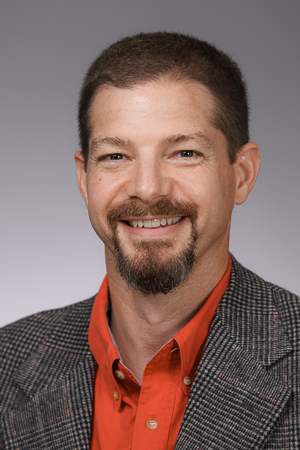Faculty Profile
Karl Qualls
Professor of History; W. Gibbs McKenney Chair in International Education (2000)Contact Information
Denny Hall
717-245-1774
Bio
Karl's teaching interests include Russian and German history, the Holocaust, comparative revolutions (political, social, and cultural), dictators, urban history, refugees, childhood, and more. His new book "Stalin's Ninos: Educating Spanish Civil War Refugee Children in the Soviet Union, 1937-51" (Toronto, 2020) examines refugee children of the Spanish Civil War who were raised in the Soviet Union and the special boarding schools designed for them and the educational methods used to develop the children into Hispano-Soviets. His previous book "From Ruins to Reconstruction: Urban Identity in Soviet Sevastopol after World War II" (Cornell, 2009) is now available in a free Ukrainian-language edition at https://www.academicstudiespress.com/9798887196992/. It challenges notions of totalitarianism, investigates the creation of historical myths, and outlines the role of monuments and urban space and identity formation in a city torn between Ukraine and Russia. It further helps us understand why Russians who have occupied the city since 2014 believe that it is a "Russian" city. These and other publication have been supported by grants from the J. Paul Getty Foundation, Kennan Institute for Advanced Russian Studies, Library of Congress, American Council of Learned Societies, National Council for Eurasian and East European Research, and the International Research and Exchange Board, among others. You can find a review of Stalin's Ninos at https://academic.oup.com/ahr/article/127/3/1466/6850944
Education
- B.A., University of Missouri at Columbia, 1993
- Ph.D., Georgetown University, 1998
Awards
- Ganoe Award for Inspirational Teaching, 2003-04
2025-2026 Academic Year
Fall 2025
GRMN 250 The Holocaust
Cross-listed with HIST 376-01 and JDST 316-02. The course explores the causes of the Shoah/Holocaust, including anti-Semitism, the eugenics movement, the growth of the modern state, and the effects of war. Themes will also explore perpetrator motivation, gendered responses, bystanders and rescuers, and the place of the Holocaust among other genocides. Students will approach the Holocaust through its historiography, which will equip them to interpret facts and understand how and why scholars have shifted interpretations over time. Course taught in English.
HIST 253 Autocracy/Uprisings/Daily Life
Cross-listed with RUSS 253-01. Course taught in English.
RUSS 253 Autocracy/Uprisings/Daily Life
Cross-listed with HIST 253-01. Course taught in English.
JDST 316 The Holocaust
Cross-listed with GRMN 250-01 and HIST 376-01. The course explores the causes of the Shoah/Holocaust, including anti-Semitism, the eugenics movement, the growth of the modern state, and the effects of war. Themes will also explore perpetrator motivation, gendered responses, bystanders and rescuers, and the place of the Holocaust among other genocides. Students will approach the Holocaust through its historiography, which will equip them to interpret facts and understand how and why scholars have shifted interpretations over time. Course taught in English.
HIST 376 The Holocaust
Cross-listed with GRMN 250-01 and JDST 316-02. The course explores the causes of the Shoah/Holocaust, including anti-Semitism, the eugenics movement, the growth of the modern state, and the effects of war. Themes will also explore perpetrator motivation, gendered responses, bystanders and rescuers, and the place of the Holocaust among other genocides. Students will approach the Holocaust through its historiography, which will equip them to interpret facts and understand how and why scholars have shifted interpretations over time. Course taught in English.
HIST 500 Independent Study
Spring 2026
HIST 234 Europe: 1914-1945
Europeans between the two world wars experienced dramatic changes. The economy collapsed, exciting and controversial art movements emerged, developments in psychology and physics changed the way we understood humans and the physical world, and of course extreme forms of politics arose across the continent, particularly fascist and communist countries building on the politics of division, hatred, and violence. This highly dynamic period often gets ignored because it is overshadowed by the two world wars that preceded and followed it. Part of this course will be to examine how the ripples from one war led to developments that anticipated the second. Moreover, we will examine how some of the democratic societies allowed themselves to slip into authoritarian dictatorships.
HIST 254 Revolut/War/Daily Life Mod Rus
Cross-listed with RUSS 254-01. Taught in English.
RUSS 254 Revolut/War/Daily Life Mod Rus
Cross-listed with HIST 254-01. Taught in English.
HIST 500 Independent Study
